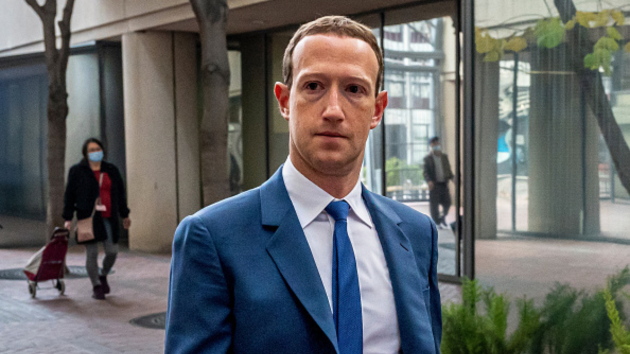
(NEW YORK) -- Facebook plans to replace its fact-checkers with "community notes," a move that Meta CEO Mark Zuckerberg said would allow the social network to return "to our roots around free expression."
"We're replacing fact checkers with Community Notes, simplifying our policies and focusing on reducing mistakes," Zuckerberg said on Tuesday. "Looking forward to this next chapter."
The changes, which will also be in place for Instagram and Threads, will lift restrictions "on some topics that are part of mainstream discourse" and will focus the company's "enforcement on illegal and high-severity violations," Joel Kaplan, chief global affairs officer, said in a blog post.
Meta executives sought in their statements to tie the update to what they described as a sea change in public discourse accompanying the rise of President-elect Donald Trump's brand of politics.
Fact-checkers who were put in place in the wake of Trump's 2016 election have proven to be "too politically biased" and have destroyed "more trust than they've created," particularly in the United States, Zuckerberg said.
"The recent elections also feel like a cultural tipping point towards once again prioritizing speech," Zuckerberg said.
The decision also follows Zuckerberg recent meeting with Trump at the president-elect's private Mar-a-Lago club in Florida. And Meta is donating to Trump's presidential inaugural committee, marking a first for the company.
The shift in policy mirrors a series of updates that Elon Musk -- a Trump ally -- made after purchasing rival social network Twitter, which he's since rebranded as X.
Kaplan on Tuesday praised the approach Musk has taken, saying X under its new owner has empowered its "community to decide when posts are potentially misleading and need more context."
"We think this could be a better way of achieving our original intention of providing people with information about what they're seeing -- and one that's less prone to bias," Kaplan said.
As the company's fact-checking capabilities have grown, they have expanded "to the point where we are making too many mistakes," which in turn has frustrated many of the social networks' users, Kaplan said.
"Too much harmless content gets censored, too many people find themselves wrongly locked up in 'Facebook jail,' and we are often too slow to respond when they do," he said.
ABC News' Michael Kreisel, Zunaira Zaki and Chris Donovan contributed to this report.